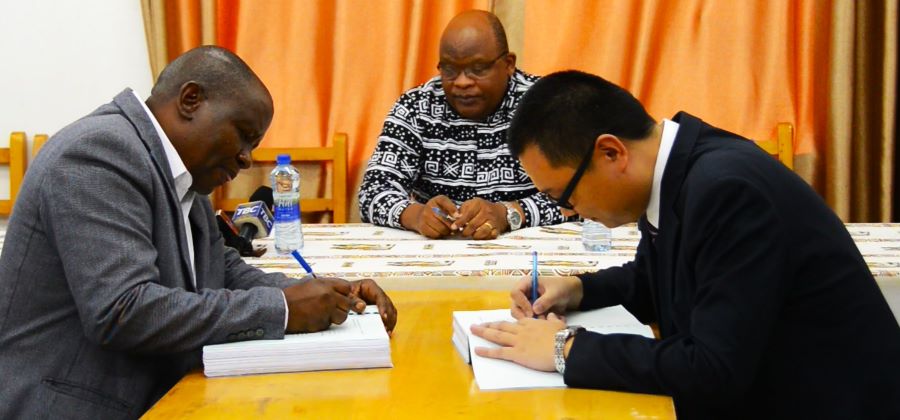Tanzania, which has been suffering series of power outages for almost a year now, will soon start churning out electricity from the foot of Africa’s highest mountain, Kilimanjaro.
In a new development, the Arusha Technical College has just inked a 10 billion/- contract for the construction of an auxiliary electricity producing plant in the country’s Northern Zone.
The Power plant is rooted within the Kikuletwa Renewable Energy Training and Research Center, a facility run by the Arusha Technical College (ATC) in the Hai District of Kilimanjaro.
Located at the foot of Africa’s highest peak, the facility also serves as a sub-regional training centre for renewable energy.
The contract between the government of Tanzania, through ATC and the project contractor, the Beijing-based, HNAC Technology Company Limited, was stamped at Kikuletwa plant in Hai District.
Professor Mussa Chacha is the Arusha Technical College Rector who explained that after eleven months, the Kikuletwa plant will be able to produce over 1.6 Megawatts of electricity power and inject the same into the National grid.
On his part the Deputy Permanent Secretary, Prof James Mdoe stated that the project will be realized within the time frame to ensure that the country gets auxiliary electricity power supply to solve current outages.

Head of the Kikuletwa Project, Robert Kabudi assured that the Kikuletwa Power Plant does not depend on rains, because it is built at the center of large permanent rivers and water sources that flow around the year.
The Project Director for HNAC Technology Company, Tader Miao boasted that his company with 30 years of project implementation experience will accomplish the task in time, guaranteeing sustainable power production in future.
HNAC, which has six bases in Changsha, Beijing, Wuhan and Shenzhen city, China, has overseas branches and offices in the Central African Republic, Chile, Pakistan, Indonesia, Uzbekistan and Zambia.
Once the Kikuletwa Project sails, the Arusha Technical College will become the first vocational training institution in East Africa to operate a serious electricity power production plant.
The World Bank had previously injected USD 16.25 million at the Kikuletwa sub-regional training centre for renewable energy within the framework of the Eastern Africa Skills for Transformation and Regional Integration Project (EASTRIP).
In addition to being a training hub the Kikuletwa Center remains a power churning plant capable of producing more than 1.7 Megawatts of electricity.
With ongoing expansion programs the centre is soon also going to be able to increase the number of students to accommodate more than 1,500 scholars.
This strategy will not only enable Tanzania to train its technicians on site but also educate other candidates from the East and Central African Region.
Previously technicians used to go to Zambia for such training, but Lusaka only provides short-term training and focuses just on hydroelectricity.
Kikuletwa Center will offer full-time training and cover all forms of renewable energy.
The new renewable energy training centre prepares students in several technical fields, including hydro; Solar; Wind as well as organic Bioenergy and is intended to be a hub for such training in East Africa.
Undertaken by the Arusha Technical College (ATC), the Renewable Energy Training and Research Center at Kikuletwa plays an important role in East Africa’s centre of excellence in renewable energy.
The ATC provides training in a number of fields including principles of operation and maintenance of hydropower plants, principles of design and maintenance of electricity transmission and distribution, programmable logic controllers (PLC) for hydropower engineers, and design, installation, service and maintenance of solar photovoltaic systems.
This Kikuletwa project also benefits from the support of Norway, which previously injected 8.3 billion Euros in 2014. For five years, this support has made it possible to set up training in hydroelectric power.
The Eastern Africa skills for transformation and regional integration programme, which is being implemented in Tanzania, Kenya and Ethiopia, aims to develop specialised technical skills in priority sectors, including transport, energy, agricultural processing, manufacturing and information and communications technology.




Comments are closed, but trackbacks and pingbacks are open.